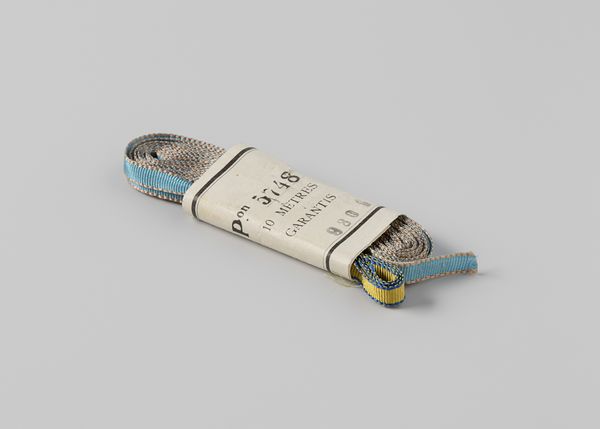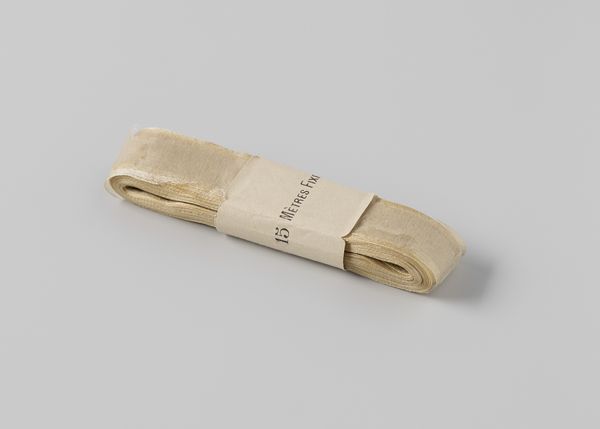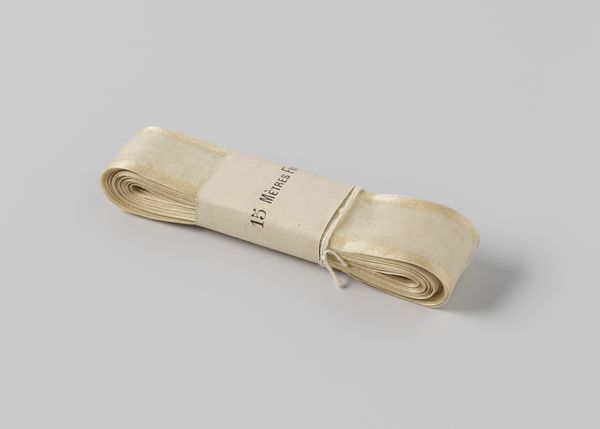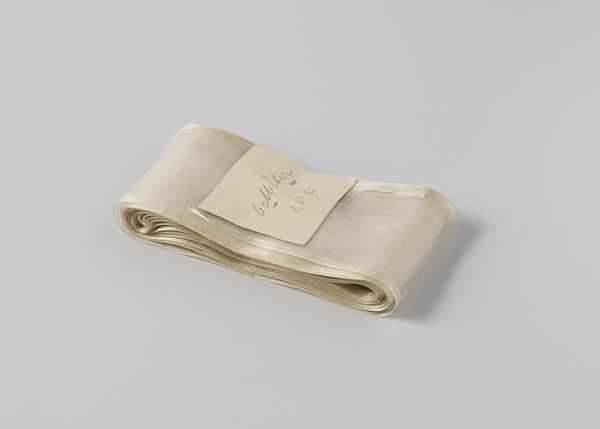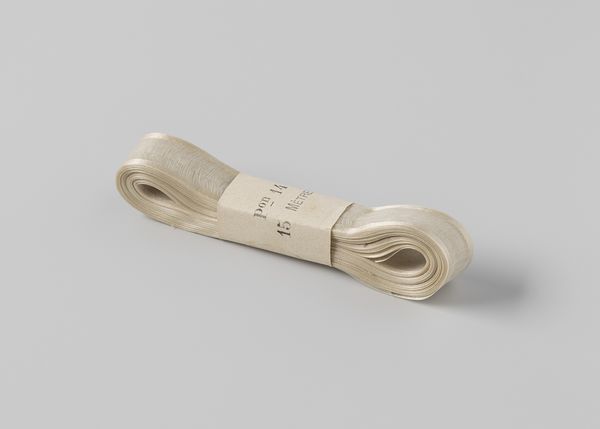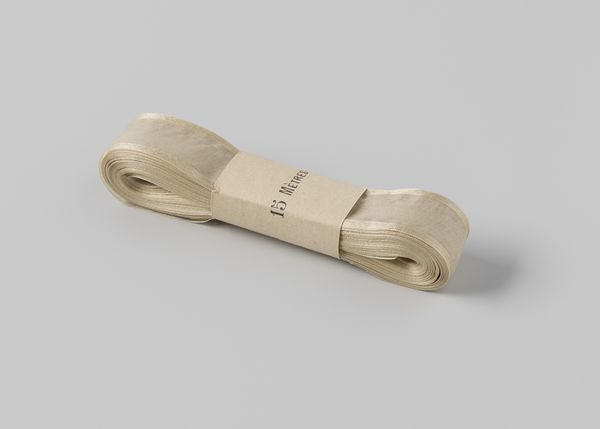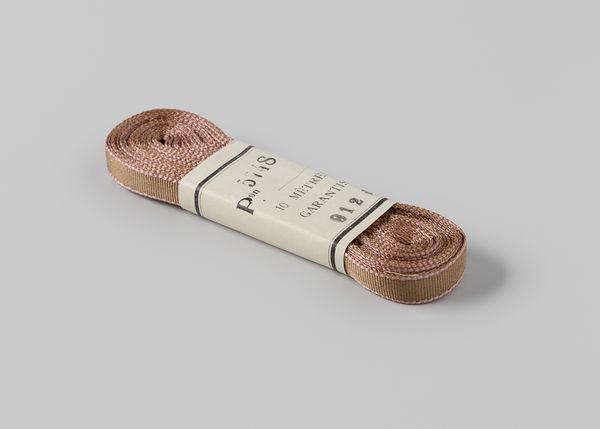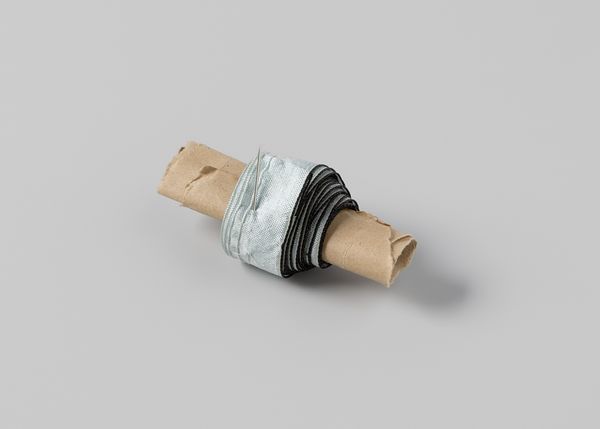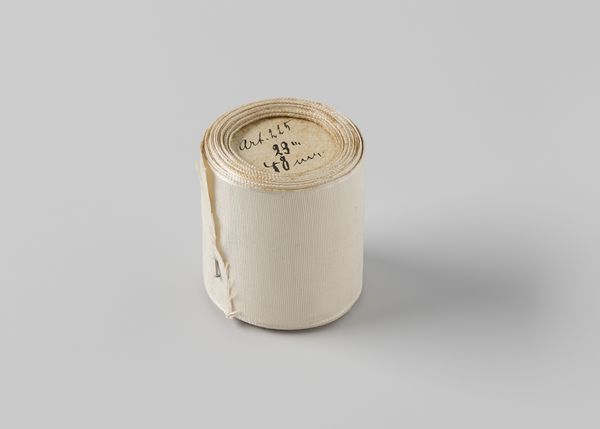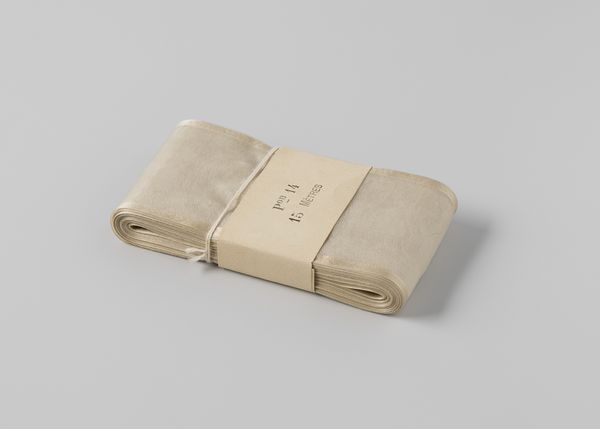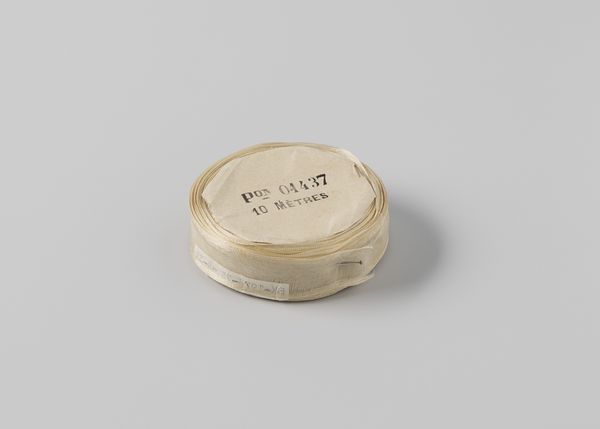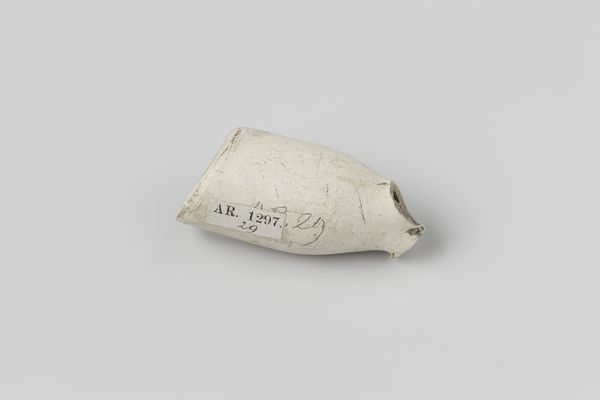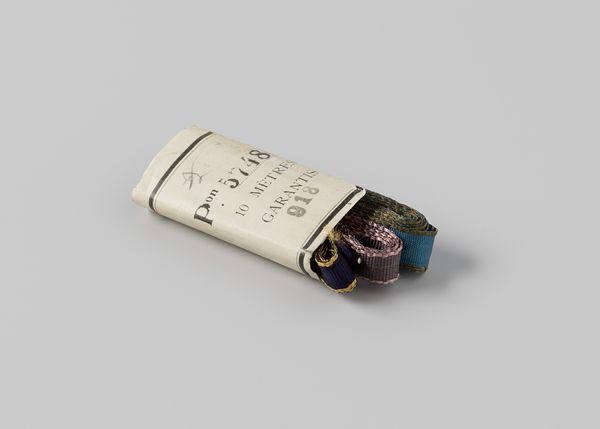
Lint in papierband, bruin aan beide zijden blauw afgebiesd c. 1890 - 1935
0:00
0:00
gustavschnitzler
Rijksmuseum
print, photography
#
studio photography
#
advertising product shot
#
product studio photography
#
product shot
# print
#
studio lighting mockup
#
photography
#
metallic object render
#
product mock up
#
graphic design product photography
#
product photography
#
retail photography
Dimensions: width 0.9 cm, height 1.6 cm, width 3.5 cm, length 9.2 cm
Copyright: Rijks Museum: Open Domain
Editor: Here we have "Lint in papierband, bruin aan beide zijden blauw afgebiesd," a photograph from between 1890 and 1935, housed in the Rijksmuseum. It looks like a close-up of a roll of ribbon in its packaging. It's… very still and composed. What's your interpretation of this photograph? Curator: Well, consider this seemingly mundane object, this roll of ribbon, frozen in time. This image speaks to the history of consumerism and labor, particularly the often invisible work of women. Think about the garment industry of the late 19th and early 20th centuries. Who was producing and consuming this ribbon? Editor: So, beyond the object itself, you see it as a symbol of the social structures of that time? Curator: Precisely. This ribbon might seem trivial, but it represents a whole system. The paper wrapping promises “10 meters garantis,” suggesting anxieties about quality and authenticity in a burgeoning market. Who was making these guarantees and who was relying on them? Also, where were these goods consumed? What classes or societal groups may have used this type of material? Editor: That makes me think about the rise of department stores during this period, and how they created new spaces for women both as consumers and workers. Curator: Exactly! The image encourages us to consider the broader social implications of even the smallest details of our material world. It's a prompt to remember the lived experiences embedded in everyday objects. Do you notice how the metallic components of the ribbons were rendered during its production? Editor: Now I’m seeing the image in a totally new light. It's not just a picture of a ribbon; it’s a record of social history. Thank you. Curator: My pleasure. Remember to look beyond the surface! Art and artifacts always invite us to question the systems that create them and that we reproduce every day.
Comments
No comments
Be the first to comment and join the conversation on the ultimate creative platform.
